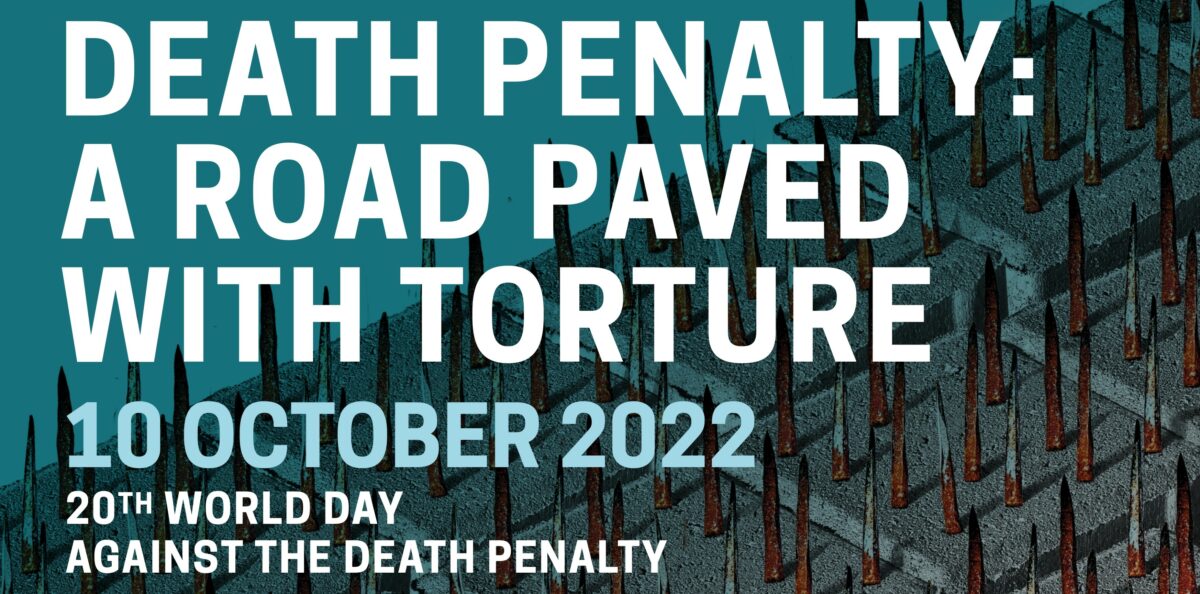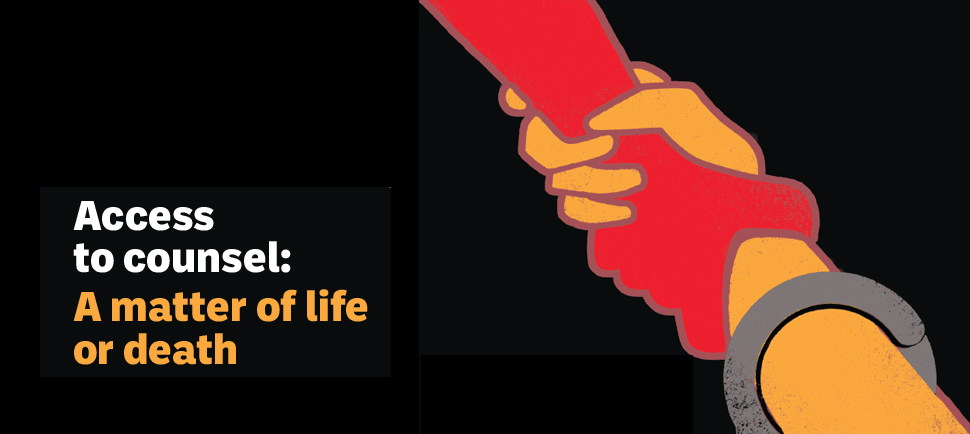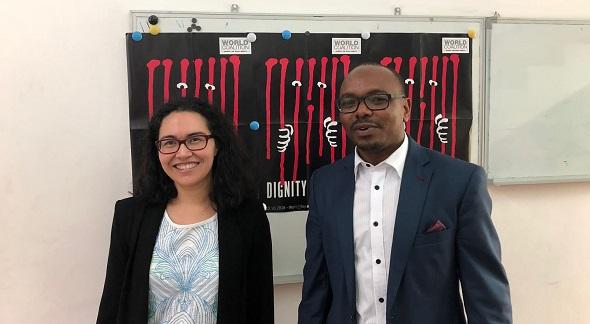Youths must stand up against the death penalty!
World Day
Can you help us understand where your organisation stands politically?
As liberals, we defend individual and collective freedom and try to associate the two. Our members can be left- or right-leaning. We are not tied to a particular party, but we feel close to the Alliance of Liberals and Democrats for Europe group in the European Parliament, for example.
Where does your organisation’s abolitionist commitment come from?
A couple of years ago, we co-organised a conference with [former French justice minister] Robert Badinter in Brussels university.
Part of his talk was about his book, L’abolition. He made us aware of the issue of the death penalty.
Our organisation has always worked in favour of human rights and democratic development, especially by supporting youth organisations in other countries.
What happened at the International Federation of Liberal Youth convention?
The convention was taking place in Dallas, Texas. It is easy to talk about the death penalty as a young European, because the countries that still use it are far away. But this time, we were close to a death row prison.
We put forward a motion on the abolition of the death penalty, and other organisations were welcome to amend it.
The text adopted by the International federation “recalls vigorously its long-lasting, active and unconditional opposition to death penalty, whatever the reason of the prisoner’s condemnation and the context in which the crime has been committed”.
All 53 national delegations taking part in the convention voted in favour of the motion, except for the Swiss one, which abstained.
What have you been doing since then?
At the moment, students are going back to college and we are writing to the organisations from countries where the death penalty is still in existence so see what they have been doing… or not.
We think the easiest way is to start by helping organisations located in countries where the death penalty is not used in practice, who can lobby for constitutional amendments that would abolish capital punishment.
We are also planning actions to raise awareness about the situation in China in the period leading up to the Olympic Games. We will take advantage of upcoming meetings between Chinese and European representatives in Brussels.
We are also going to discuss the issue of an Olympic boycott. We haven’t decided on that: this is a symbolic act that could embarass the Chinese government, but we don’t want to target the Chinese population.
What are you planning for World Day Against the Death Penalty on October 10?
We’ve contacted the Belgian delegation at the UN, which is currently sitting on the Security Council, about the moratorium resolution. We have been working on countries that have not yet supported the resolution (mostly for economic reasons, I’m told). We have good contacts with youth organisations that have links with governments in several African countries, such as Senegal.
We are also going to ask the Belgian Parliament to pass a motion focussing on the importance of universal abolition.
And there will be posters, conferences and debates on campuses, where students will be able to voice their opinion. The issue of an Olympic boycott will be part of the discussion.
Do you think young people can play a specific role in the anti-death penalty movement?
When you are a young person with a political committment, you are more radical and less influenced by diplomatic and economic considerations than professional politicians are. It is up to the youth to stand up and protest when countries keep using the death penalty.
Today’s youth is a bit selfish, young people tend to focus on issues that affect them directly. This is where we come in: our role is to kick-start reactions.
Categories
Belgium





